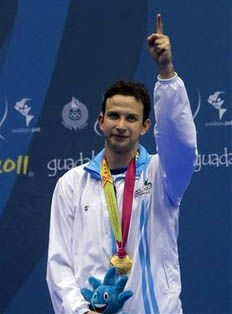
American Samoa sent a team to the 2008 Summer Olympics in Beijing, China. The U.S. territory selected four athletes to compete in three sports: swimming, athletics and judo. The dependency's participation in Beijing marked its seventh participation in any Olympic game since its debut at the 1988 Summer Olympics in Seoul, and its sixth participation at any Summer Olympic games. Of the four American Samoan athletes who participated in Beijing, all four were first-time Olympians and born outside American Samoa and none of the four advanced past the qualification or preliminary rounds of their events. More women participated in the 2008 American Samoan Olympic delegation than in any one delegation in its Olympic history. Judoka Silulu A'etonu was the territory's flagbearer at the ceremonies.

On behalf of the Cook Islands the Cook Islands Sports and National Olympic Committee sent a team to the 2008 Summer Olympics in Beijing, China, marking its sixth consecutive appearance at the Olympics since its debut in the 1988 Summer Olympics in Seoul, South Korea. The country sent four athletes to the Games across three sports and four distinct events. No athlete of the Cook Islander delegation progressed past the first rounds in their events and did not go on to win medals. Pera was the nation's flag bearer at the ceremonies.
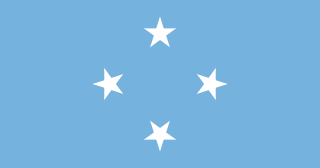
The Federated States of Micronesia sent a team of five athletes to compete at the 2008 Summer Olympics in Beijing, China. The appearance of the delegation marked the third appearance by a Micronesian team at the Olympics since its debut at the 2000 Summer Olympics in Sydney, Australia. Three male athletes and two female athletes comprised the Olympic team. None of the track or swimming athletes advanced past the qualification round, and Minginfel placed second to last in his event. There has yet to be a medalist from the Federated States of Micronesia. Minginfel held the Micronesian flag in the opening ceremony.

Indonesia competed in the 2008 Summer Olympics, held in Beijing, People's Republic of China from August 8 to August 24, 2008. At the games, twenty-two Indonesians had qualified to compete, while the other three had been granted a wildcard entry.

The Bahamas sent a delegation of athletes to compete in the 2008 Summer Olympics, which were held in Beijing, People's Republic of China from 8 to 24 August 2008. Its Beijing appearance marked its fourteenth time at the Olympics since its début at the 1952 Summer Olympics in Helsinki. The delegation included 25 athletes across four sports and nineteen distinct events. Its athletes advanced to semifinals in eight events and finals in five events, medaling in two of them. The Bahamian delegation was one of the largest sent between its début and 2008. The country's flag bearer was Debbie Ferguson-McKenzie.

Haiti sent a delegation to compete in the 2008 Summer Olympics held in Beijing, People's Republic of China, from August 8 to August 24, 2008. Its participation in Beijing marked its seventh consecutive appearance at the summer Olympics and its fourteenth appearance overall, with its first being at the 1900 Summer Olympics in Paris. The Haitian Olympic team included seven athletes participating in track and field, boxing, and judo. More women participated for Haiti in 2008 than at any single Olympic games prior. Although Pierre and Dorival advanced to quarterfinals in their events, there were no Haitian medalists in Beijing. Brutus carried his country's flag at the ceremonies.

Puerto Rico competed in the 2008 Summer Olympics which was held in Beijing, People's Republic of China from August 8 to August 24, 2008. The American territory with a population of four million people qualified 22 athletes in eight different sports. The appearance of the Puerto Rican delegation at the Beijing Olympics marked the commonwealth's sixteenth consecutive appearance at the Summer Olympics, and its twenty-second appearance at any Olympic Games, since its debut at the 1948 Summer Olympics in London, England. Of its competitors participating in events that involve progression by heats, six athletes advanced at least one round in their events, and two advanced at least two rounds, with Asunción Ocasio almost medaling bronze in taekwondo. However, there were no Puerto Rican medalists at the Beijing Olympics. McWilliams Arroyo, a boxer, bore Puerto Rico's flag at the ceremonies.

The United States Virgin Islands competed in the 2008 Summer Olympics, which were held in Beijing, the People's Republic of China from August 8 to August 24, 2008. The appearance of its 23-person delegation marked its fifteenth appearance at the Olympic games, and its tenth appearance at the Summer Olympic games. In total, seven athletes participated on behalf of the Virgin Islands in Beijing. Of those, John Jackson and Tabarie Henry progressed to a post-preliminary event, and Henry reached semifinals in his own. There were no Virgin Islander medalists at the Beijing Olympics.

Sudan sent a delegation to compete at the 2008 Summer Olympics in Beijing, China. Nine competitors, all from the Darfur region and northern Sudan, represented Sudan at the Beijing games.
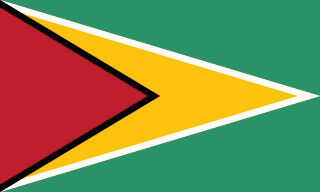
Guyana sent a team to compete at the 2008 Summer Olympics in Beijing, China. Four representatives of Guyana qualified to take part in the Beijing Games–Adam Harris, Marian Burnett, and Aliann Pompey in track, and Niall Roberts in swimming–and Pompey advanced past the first round in her event, progressing to semifinals. Meanwhile, Alika Morgan and Geron Williams (cycling) took part in the Games' Youth Olympics camp, held in Beijing at the same time as the Olympics. Along with coaches and administrative members, Guyana sent a total of ten people to Beijing. The appearance of Guyana's delegation in Beijing marked the fifteenth Guyanese Olympic delegation to appear at an Olympic games, which started with their participation as British Guiana in the 1948 Summer Olympics. There were no medalists from Guyana at the Beijing Olympics. Roberts was Guyana's flagbearer at the ceremonies in Beijing.
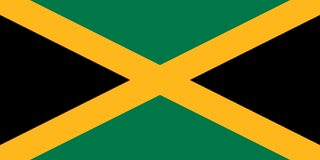
Jamaica sent a delegation to compete at the 2008 Summer Olympics, held in Beijing, China from August 8 to August 24, 2008. This was, by far, Jamaica's best showing at the Summer Olympics; it was the nation's largest delegation yet, and its athletes nearly doubled its total gold medal count in addition to breaking the nation's record for number of medals earned in a single games. Jamaica's appearance at Beijing was its fifteenth consecutive appearance and appearance as an independent nation, although it had previously participated in four other games as a British colony and as part of the West Indies Federation. In the 29 events that included Jamaican athletes, there were 26 cases in which a Jamaican athlete or relay progressed to a final round. Usain Bolt won three of Jamaica's six gold medals at Beijing, breaking an Olympic and world record in all three of the events in which he participated. Shelly-Ann Fraser led an unprecedented Jamaican sweep of the medals in the Women's 100 m. Female sprinter Veronica Campbell-Brown carried Jamaica's flag at the ceremonies.

Belize competed in the 2008 Summer Olympics, held in Beijing, People's Republic of China from 8 to 24 August 2008. Its participation in Beijing marked its eighth Olympic appearance under the name "Belize" and its tenth overall, as its first two appearances were under the name "British Honduras". The Belizean delegation in 2008 included four athletes: three participated in track and field events and one in taekwondo. Belize did not medal in Beijing, and had not medaled before Beijing, but Jonathan Williams became the first Belizean athlete to advance past the first round of any Olympic event.

Antigua and Barbuda competed at the 2008 Summer Olympics in Beijing, China, submitting a delegation that included athletes Daniel Bailey, Brendan Christian, James Grayman, and Sonia Williams in track and field events, and Kareem Valentine in swimming. Antigua and Barbuda's appearance in Beijing marked its eighth appearance at the Summer Olympics since the nation's debut at the 1976 Summer Olympics in Montréal, Canada. There were no medalists from Antigua and Barbuda in 2008, although Bailey reached the quarterfinals and Christian the semifinals of their respective events.

Barbados sent a delegation to compete at the 2008 Summer Olympics in Beijing, China. The island nation made its tenth appearance as an independent nation upon its arrival in Beijing. Eight athletes across three sports and ten events represented Barbados, marking the smallest delegation in its history up to the Beijing Games. Its runners and swimmers advanced past the first rounds in their events in four of their nine events, although none advanced to their events' final rounds or medaled. The nation's flagbearer during the Beijing Games was swimmer Bradley Ally.

Bolivia sent a delegation to compete at the 2008 Summer Olympics, held in Beijing, China. The South American country's delegation was the fifteenth Summer Olympic team and seventeenth overall Olympic team overall sent by the country. Bolivia's National Olympic Committee sent seven athletes–three women and four men–across five sports and seven distinct events. A substantial number of the athletes originated in southern Bolivian cities, most notably Santa Cruz de la Sierra. All athletes except for cyclist Horacio Gallardo finished their events, although no medals were won by the country at these Games. Trap shooter César Menacho was the Bolivian flag bearer at the ceremonies.

Suriname sent a delegation of four people to compete at the 2008 Summer Olympics in Beijing, China: two athletes (Jurgen Themen and Kirsten Nieuwendam and two swimmers who participated in four distinct events. The appearance of Suriname at Beijing marked its tenth Olympic appearance, which included every Olympic games since the 1968 Summer Olympics in Mexico City and excluded the 1980 Summer Olympics in Moscow. Its four athletes did not advance past the first round in each of their events. The Surinamese flag bearer in Beijing was not an athlete, but Anthony Nesty, the only medalist in Surinamese history and the nation's Olympic swimming coach.

Trinidad and Tobago sent a delegation to compete at the 2008 Summer Olympics in Beijing, China. Its participation in the Beijing games marked its eighteenth Olympic appearance and fifteenth Summer Olympic appearance since its debut at the 1948 Summer Olympics in London, excluding its joint participation with Jamaica and Barbados in 1960 as the West Indies Federation. With 28 athletes, more Trinidadians had competed at the Olympics than in any other single Olympic Games in its history before Beijing. Athletes representing Trinidad and Tobago advanced past the preliminary or qualification rounds in twelve events and reached the final rounds in four of those events. Of those four events, silver medals were won in the men's 100 meters and in the men's 4x100 meters relay. The latter was upgraded to gold due to one member of the quartet that crossed the line first, Nesta Carter, testing positive for a banned substance, resulting in their disqualification. The nation's flag bearer at the opening ceremony that year was swimmer and Athens medalist George Bovell.
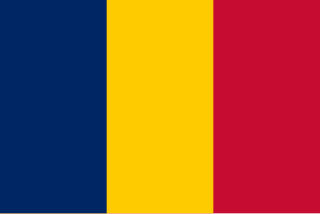
Chad sent a delegation of two athletes to compete at the 2008 Summer Olympics in Beijing, China: Moumi Sébergué, who competed in the men's 100 meters, and Hinikissia Albertine Ndikert, who competed in the women's 100 meters and also bore the Chadian flag during ceremonies. The appearance of this delegation marked the tenth appearance of Chad at the Summer Olympics, the first been in 1964 Summer Olympics in Tokyo, Japan, and its seventh appearance since its Olympic hiatus between 1976 and 1980. Both Sébergué and Ndikert ranked seventh in their respective heats and did not advance past the qualification round. As of the end of the 2012 London Olympics, there have been no medalists from Chad.

The Republic of the Congo sent a delegation to compete at the 2008 Summer Olympics in Beijing, China.
Rita Sanz-Agero is a female modern pentathlete from Guatemala. At age sixteen, Sanz-Agero became the youngest modern pentathlete to compete at the 2008 Summer Olympics in Beijing, where she finished thirty-fourth in the women's event, with a score of 4,844 points.


